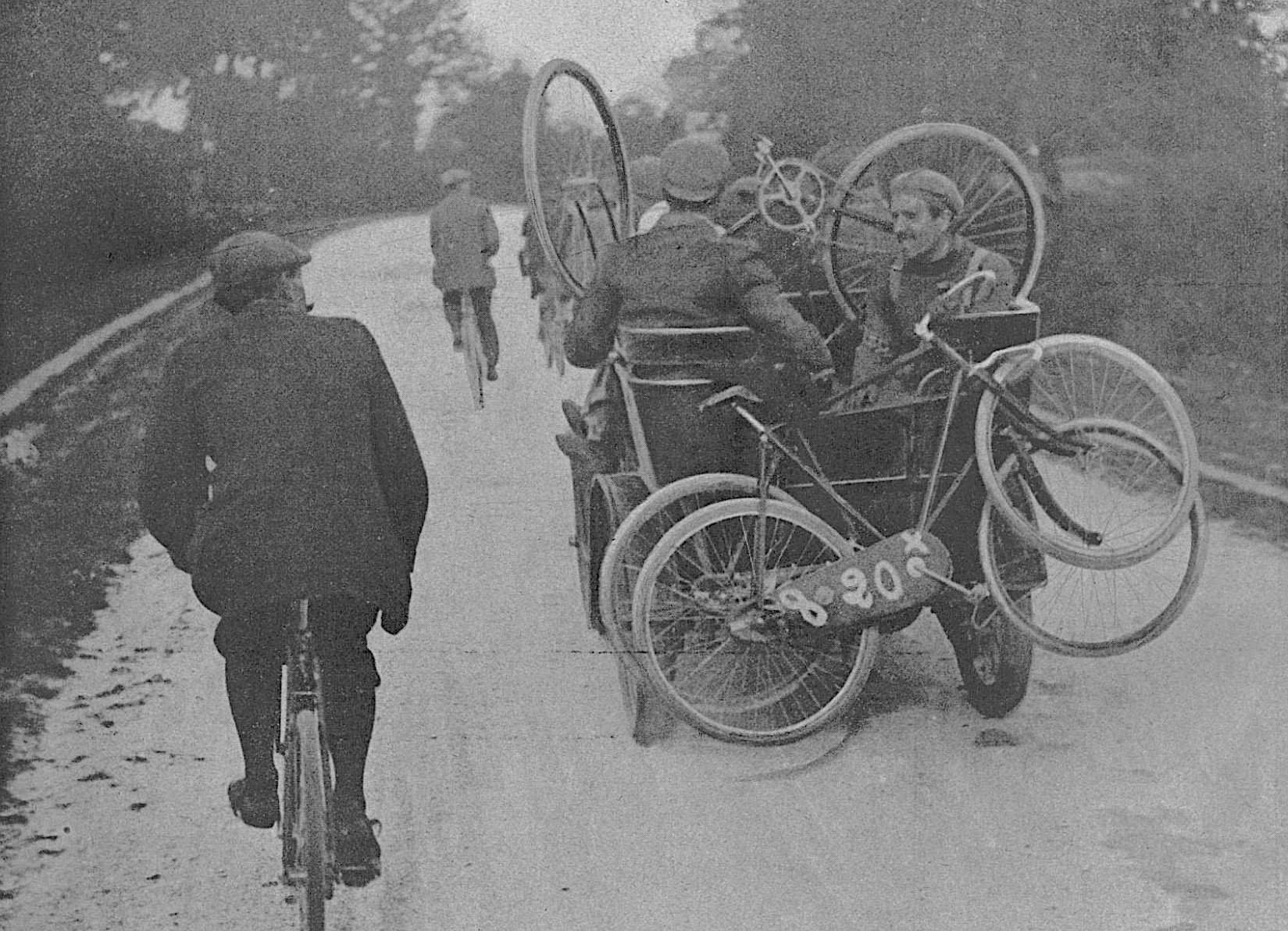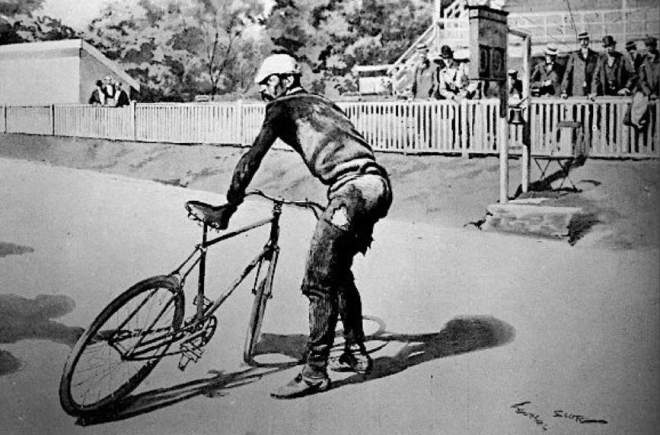Today’s historic photo of the day: Lucien Lesna during the 1901 Paris-Brest-Paris, with his support car beside him. I love the heroic era of cycling and the clothing of that era. Lucien Lesna (11 October 1863 – 11 July 1932) was a French racing cyclist. He won 1901 and 1902 editions of Paris-Roubaix.
Lucien Lesna
Lesna was born on October 11, 1863, in Locle, near Neuchâtel in Switzerland, of French parents. His family then moved to Geneva. He discovered cycling late and started racing only at the age of 26. In 1890, he won the championship title of the Velocipedic Union of French-speaking Switzerland. The following year, he finished 2nd in the Tour du Lac (also called Tour du lac Léman).
In 1894, Lesna won Bordeaux-Paris, the most important classic race of the time, on a Peugeot bike. Created in 1891, the event was raced that year on a course of 591 kilometers. First, he was distanced by the British cyclist Charles Lucas. But he managed to catch him before Blois and then attacked. He crossed the finish line alone at the Trotting Club in Levallois, after 25 hours 11 min 7 seconds of racing. In the same year, he won Paris-Saint-Malo, on a course of nearly 400 kilometers, as well as Paris-Bar-le-Duc, a race of 250 kilometers.
In the following years, Lesna devoted himself mainly to track events. In 1895, he won the French national championship in the middle-distance. In 1896, he became the European champion of the discipline in Berlin, covering 100 kilometers in 2 hours and 21 minutes. In 1898, he won a second European middle-distance championship title in Mainz, Germany. From 1898 to 1900, Lucien Lesna competed in many track events in Germany with great success. For example, he was 3rd in the Grand Prix of Hamburg in 1899. In these years, he also raced in Australia and in the United States.

In the 1901 edition of Paris-Brest-Paris, pictured above, Lucien Lesna attacked early in the race and arrived in Brest two hours ahead of his main competitors. On the way back, he stopped to take a bath in Rennes because of the sweltering heat. This was a mistake, Maurice Garin, who would win the inaugural Tour de France in 1903, caught him and won the race at the Parc des Princes. Lucien Lesna took his revenge in the following year by winning the only edition of Marseille-Paris in 38 hours 43 minutes.
In the Paris-Madrid auto race of 1903, in which he participated as a motorcyclist on a Peugeot, he suffered an accident and broke his knee, and was forced to stop cycling.
At the end of 1909-early 1910, he learned to fly planes at Pau in the Blériot school with Claude Grahame-White (21 August 1879 – 19 August 1959), the English pioneer of aviation, and the first to make a night flight, during the Daily Mail sponsored 1910 London to Manchester air race. On December 18, 1909, he damaged his aircraft by flying too low. On August 12, 1910, during an airplane flight in Kortrijk, he suffered a serious accident where he broke his leg again.
Finally, on July 2, 1911, his plane struck in a tree at the meeting in Valognes and he was seriously wounded.
In the later years, he worked as a masseur and was domiciled in Paris, 12 rue du Colisée. He died as a result of a motorcycle accident that occurred on July 11, 1932, in a bend of the Parville coast at the entrance to Évreux.
In 2002, Lucien Lesna was one of 44 riders in the “Hall of Fame” list published by UCI.

Sources
- Lucien Lesna on Wikipedia
- Paris-Brest-Paris on Wikipedia
- Fausto Coppi in Africa [A Very Rare Photo] - January 4, 2025
- Jacques Anquetil During the 1965 Bordeaux-Paris - December 13, 2024
- Colnago Unveils New Aero Bike for Tadej Pogačar and UAE Team Emirates: Colnago Y1Rs - December 9, 2024